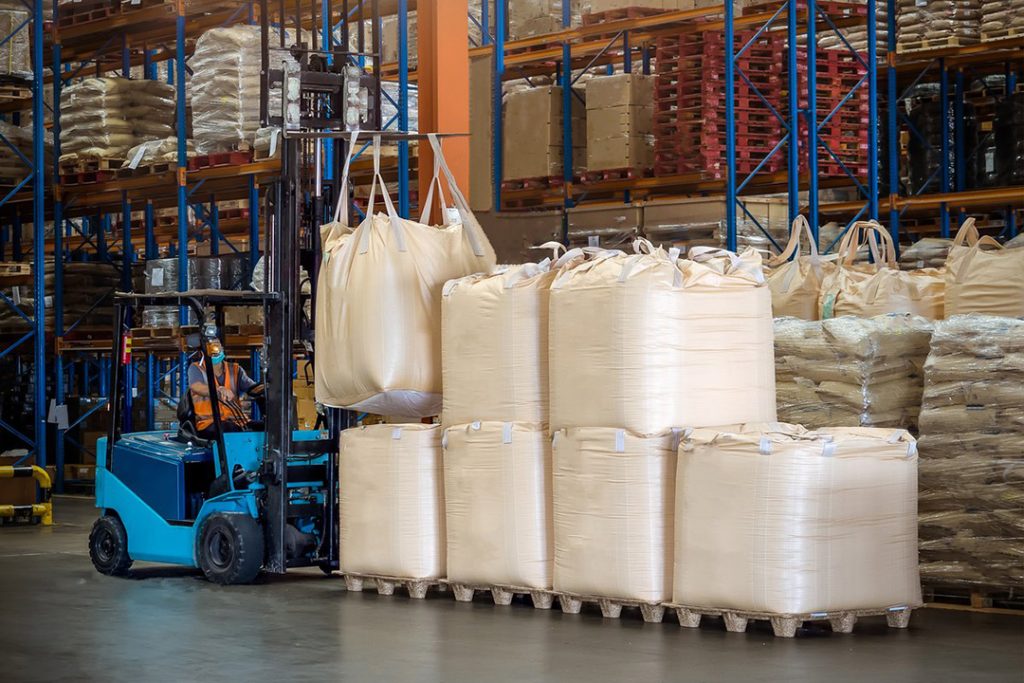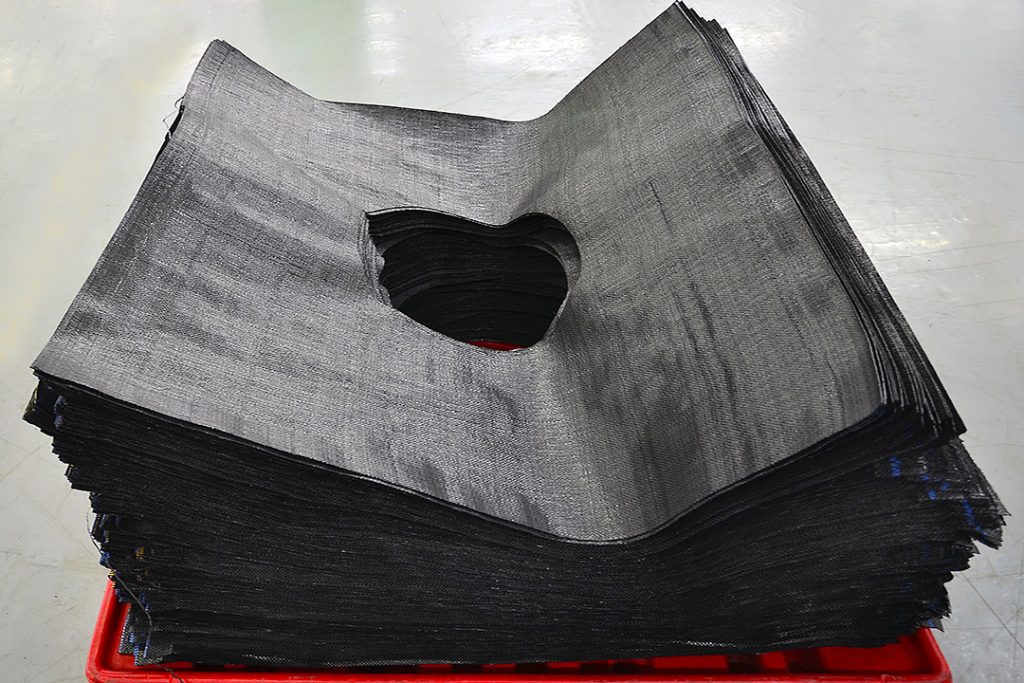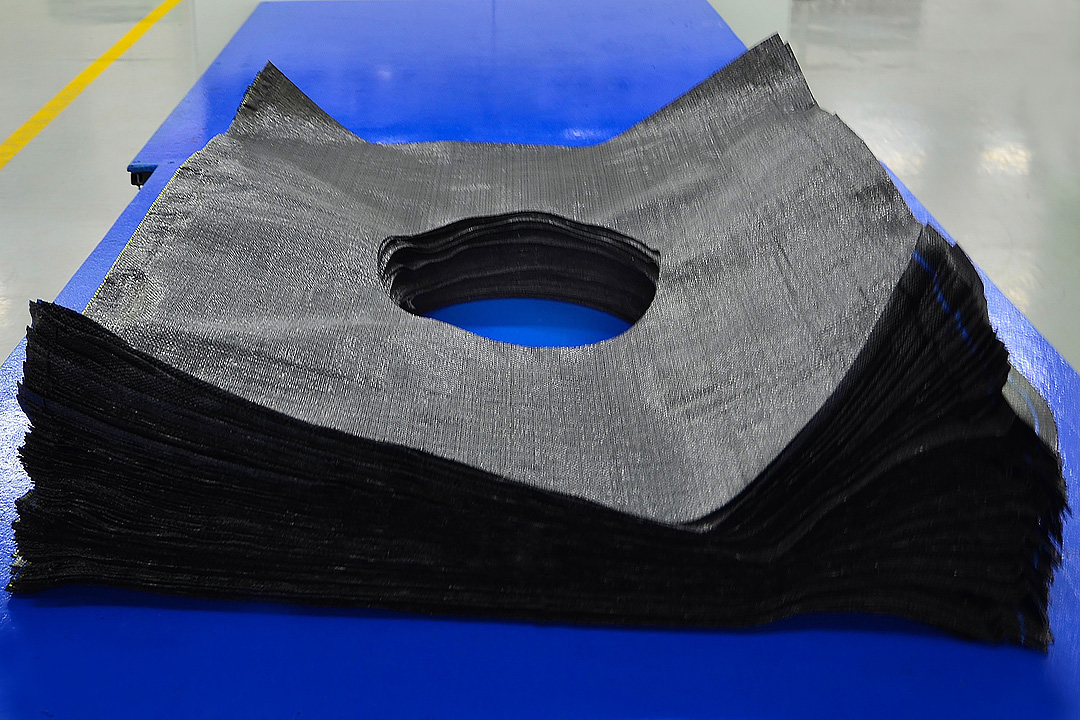Bulk bags are made from woven tapes of polypropylene (PP), which makes the fabric lightweight but flexible and strong. These high-strength PP tapes are extruded on-site at Custom Bulk Bags, ensuring a high-quality product that performs as expected. The weight of the woven fabric plays an important role in safety, so it’s good to know what you’re ordering and how this impacts usability.
Custom Bulk Bags is a leading manufacturer and supplier of flexible intermediate bulk containers (FIBCs) in South Africa. We produce up to 3.5 million bulk bags per year. These products all have a minimum safety factor rating of 5:1 and adhere to international regulations and quality standards.

Why FIBC fabric weight is important
The weight of bulk bag fabric is a good indicator of strength and safety. Insufficient weight can lead to bag failures and possible injury to handlers. The heavier the material, the more load it can take – a 160gsm fabric is suitable for a 900kg bulk bag but a 245gsm fabric can be used for a 1800kg bag.
However, an increase in material weight can also increase transportation costs, so it’s important to strike a balance between weight and costs for optimal efficiency and performance. The fabric weight is variable and can be tailored to your specific needs. This is largely determined by the thickness of the extruded tapes
In addition, an optional coating can be applied to the material to increase its protection against moisture penetration. This lamination typically weighs around 30gsm but it does not increase the strength of the bag as it is not a load-bearing feature.

How to weigh the fabric
You will need two pieces of equipment to accurately weigh bulk bag fabric; a sample cutter and a high-precision digital scale. Cut two small squares from the material of a bulk bag from two separate places.
These squares should be just bigger than the sample cutter. Note that non-load-bearing components, such as filling spouts, duffle tops and discharge spouts will be made from lighter fabric than the main body.
Use the sample cutter to cut a circle from your two squares. This circular piece of material will now be a precise size and can be placed on the digital scale. Measure its weight in grams and multiply this answer by 100 to get the fabric weight per square metre (i.e. gsm). This will allow you to compare your fabric weight with the order specs to ensure that you have received the correct order from the manufacturer.
Working with a reputable supplier will guarantee that your bulk bag fabric matches your order specification. At Custom Bulk Bags, our team of expert consultants will guide you through the specification process to ensure that you receive the perfect packaging solutions for your needs. Speak to one of our expert bulk bag consultants before placing an order. For more information about our bulk bags, please contact us today.
___
Custom Bulk Bags is a leading South African manufacturer of woven polypropylene bags for various industries, such as mining, chemicals and food. We are able to produce over 3.5-million bulk bags per year, keeping our customers in stock at all times. Our bags adhere to the highest levels of quality as a result of our stringent in-house testing and quality control programmes.
Custom Bulk Bags holds ISO 9001 certification and we currently have a number of UN-certified designs. We are a Level 2 B-BBEE manufacturer and supplier and fall under the ownership structure of Deneb Investments Limited. For more information on our products, contact sales@custombulkbags.co.za. Follow us on Facebook for our latest news and industry insights.

